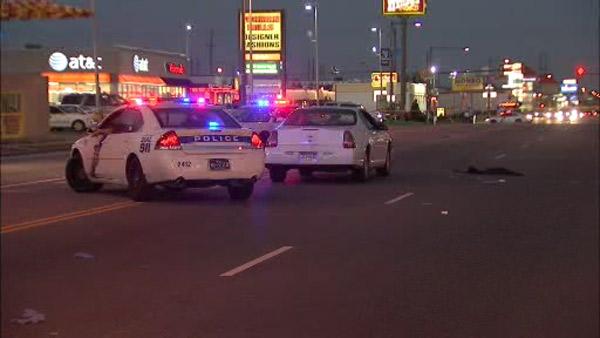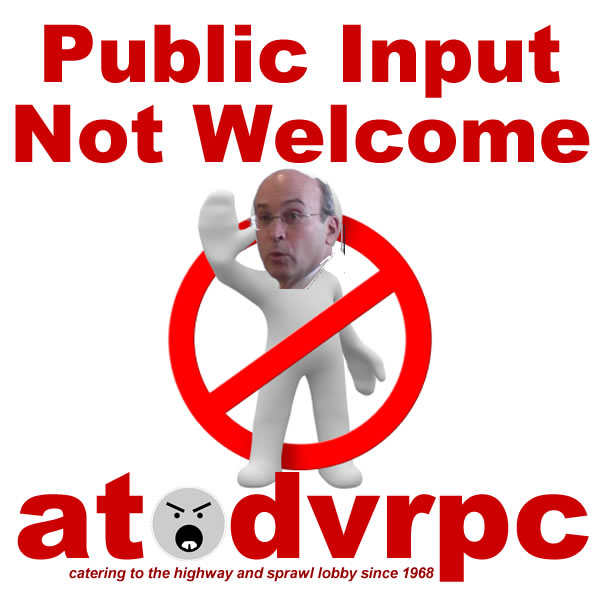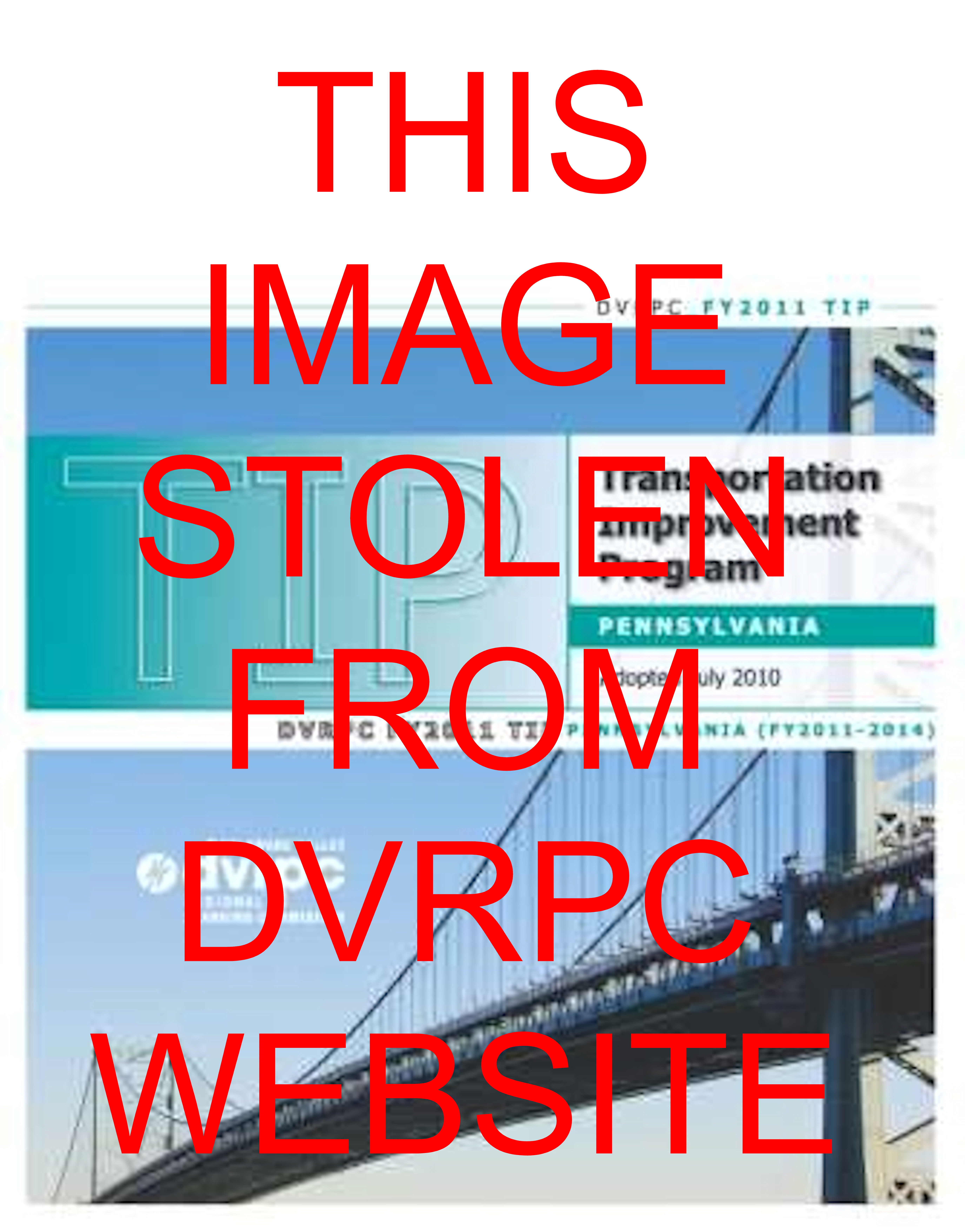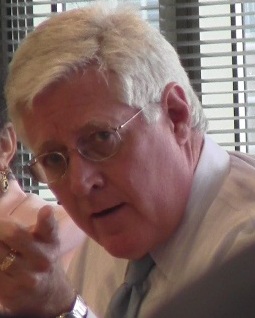Agency Watch
January 30, 2014
Historical Narrative - Restoration of Rail Service in Pennsylvania an Impossible Feat

further their agenda
PA-TEC was started in mid-2009 by three individuals, I being one of them. Our initial goal was to truly understand why the Newtown line remained derelict after the herculean efforts made to restore service in the 1990s. The first goal was to gauge support from residents. To that end, a petition was started and promoted at SEPTA stations with mock timetables (clearly stating such). Over 5,000 responses were received, from local residents, commuters and of course, train buffs. Most support came from Bucks residents but a good 35% were MontoCo. We spoke to DVRPC officials who advised that both they and SEPTA will do what the pols want; we had to “sell” the benefits of the reactivated Newtown line to them. PA-TEC also spoke directly with Byron Comati, SEPTA Director of Strategic Planning and Analysis, on several occasions. He reiterated all the things working against the line, but admitted there was a need for it. He also said without political support, there is no point in proceeded. PA-TEC then embarked on a Newtown Line Campaign Blitz. The website R8Newtown.com was created. PA-TEC devised a very simple plan involving an incremental expansion instead of all at once. With few exceptions (MBTA Greenbush line), this is how every other transit agency in North America embarks on expansion projects – little by little. Every politician at a local and Commonwealth level that had a say in the line was contacted, with their corresponding email address being listed on the website. Interested users could send one cohesive letter, outlining the benefits and basic start-up costs to all politicians in one shot. Eventually, SEPTA began receiving calls almost daily from politicians they did not even know existed. The pols were armed with basic facts concerning population, ridership estimates, etc. and wanted to know more about this railroad line owned by SEPTA within the 5-county region that very few had even heard of.
The constant barrage of emails and phone calls resulted in SEPTA calling at their headquarters on January 15, 2010. All major political players were in attendance. SEPTA CFO Richard Burnfield commented that it marked the only time major representatives of this magnitude from both counties and related townships were together in the same room with SEPTA to discuss the Newtown line in earnest (interestingly, Bucks County Commissioner and SEPTA Board member Charlie Martin called in from his Doylestown office). Burnfield ran the meeting and discussed how residents along the Newtown corridor could drive to the Warminster or West Trenton line for service. PA-TEC respectfully disagreed and explained how the line will attract many drive-tos from a larger catchment area like Wrightstown, Richboro as well as displaced Warminster or West Trenton riders (case in point - nearly all those cars parked at Hatboro and Warminster are not locals; same would hold true to Newtown and Southampton). I spoke with both Mr. Comati and Mr. Burnfield, thanked them for holding the meeting and said if it not meant to be, PA-TEC will go quietly. Both men were respectful, understanding, well spoken, educated and shrewd when called for. Notably, a young Burnfield was on hand when the line switched to busses in 1983 so he was able to offer firsthand insight. When asked about the possibility of public/private partnerships (DBOM, like NJT's RiverLINE and Hudson-Bergen Light Rail, as well as Denver RTA), Comati said that was not possible in the Commonwealth because laws enacted in the 1950s forbid it. In addition, there is no dedicated tax for rail expansion in the Commonwealth. NJ, CO, CT, MD, VA and MA all do not have these restrictions. Also, unlike most states, SEPTA is not a branch of the Commonwealth's DOT. Nearly every other state with passenger rail service includes it as part of their corresponding DOT program. In essence, SEPTA has few options to consider for expansion and funding, leading the belief that Pennsylvania is still stuck in the mud. At the conclusion of the meeting, State representative Steve Santarsiero stood up and said, “there will be a study done, and I will see to it.” Bucks County Commissioner Diane Marseglia was also in attendance and a staunch supporter. Comati also stated that he was impressed with the level of professionalism PA-TEC exhibited and asked that we keep him in the loop as to our progress, which we did. PA-TEC was about creating healthy working relationships and maintaining transparency.
The next major event was a Town Hall Meeting sponsored by the Newtown 21st Century Voice group at George School on February 28, 2010 which was streamed live online. There was near unanimous support from all attendees. State representative Steve Santarsiero was in attendance that afternoon and publically supported restored service as well as improved bus service to NJT’s Trenton station. He was not blind to the fact that commuters need options in both directions.
In the process, we obtained support from the likes of State reps Josh Shapiro, Tom Murt, and Senator Chuck McIllhinney. SEPTA did a good job erasing the line from existence, as younger pols had never even heard of the Newtown branch. We received unanimous support from nearly every township and have the resolutions to prove it. We also spoke at Bucks County Community College (11.19.10). These discussions were not just about the Newtown line, but dealt with Regional Sustainability and Regional Planning and how resumption of even minimal service plays an important role in that. Gannett Fleming, Inc. was tapped to begin a basic study with Santarsiero securing money from the state. We were happy that the Newtown line was now back in the news and being represented in a positive light. It appeared many old political obstacles had died away and there was a genuine chance the branch would at least find its place back on SEPTA's Long Range Planning report. PA-TEC had found the line's political cheerleader. Next would be a Senator who shared Santarsiero's views.
Then came the meeting with Senator Chuck McIllhinney. McIllhinney was very interested in the group and our ideas based on his communication with Santarsiero. Within minutes of the meeting’s start, Bucks County Commissioner and SEPTA Board member Charlie Martin arrived unexpectedly, saying SEPTA Board chairman Pat Deon (a Bucks County resident) insisted Martin be present. Martin then proceeded to discredit PA-TEC at every point in our presentation and our efforts to dissuade McIllhinney from being interested. Instead of being a discussion with McIllhinney, it was a tennis match between PA-TEC and Martin to create the illusion of controversy. Concerning the Jenkintown parking garage, Martin said he himself would much rather drive to Jenkintown to board SEPTA Southampton (his hometown or Newtown) and most residents would do the same. We asked him if he would like us to publish the fact the Bucks County Commissioner feels his constituents should drive to MontCo to board a train. He had no response. Martin added that “no trains will ever run on that line again. If they ever do, it will be done by SEPTA.” I will let all of you interpret that on your own. The meeting was an eye-opener and proof positive that certain factions within SEPTA are the reason the line is dead.
Threats and brainwashing continued. PA-TEC met with Upper Moreland in May 2010 and received notable support from Commissioner Lisa Romaniello. She was later advised by representative of SEPTA by supporting Newtown line restoration efforts, she would nullify funding for the Willow Grove station redevelopment. Our last call with Lisa Romaniello was the sound of a visibly shaken person.
Bucks County Commissioner Diane Marseglia was a wonderful resource for PA-TEC. She too was silenced when she became DVRPC Secretary. We have not heard from her since, and when we last did, she was not the same person. DVPRC put her in a corner and it was obvious.We attempted to meet with Northampton Township, who at the time was led by Pat Deon's brother, Vince Deon. Vince told us to "get lost - we don't need outsiders telling us what to do." The brash Vince was voted out shortly thereafter and cooler heads now prevail in Northampton, who have gone on record saying "no trails"http://northampton.patch.com/groups/politics-and-elections/p/rail-to-trail-project-on-back-burner-for-township and that commuter trains are needed, but there is no money.
PA-TEC also testified at the State Transportation Commission for the Newtown line’s inclusion in PennDOT’s 12-year transportation program on September 2, 2009. We also met with PennDOT representatives in Harrisburg in Summer 2011 to discuss the Newtown line and its relation to I-95. They were alarmed that neither SEPTA nor DVRPC included the line as it related to PennDOT’s massive reconstruction project slated for I-95. Some never even heard of the line whatsoever. They wished there was more they could do. Since SEPTA was not a part of PennDOT whatsoever, nothing could be done but watch and question.Five years later, I can say I was there for all of it. We spoke to every pol possible, we kissed babies, and we were told "no" as many times as "yes." There were a few occasional "whys" and some "you guys are nuts. But you've gotten father than most would have." Some politicians were myopic, some doubtful, and some outright loving the idea and wondered why SEPTA said nothing about the line - but all supported better public transportation. On several occasions, Comati and Burnfield kindly asked us, “can’t you guys like a different line?” They too are acutely aware of the political football surrounding the corridor. PA-TEC has no ill will towards those who have helped us, listened to us and even slammed doors in our faces. There are greater forces at work that have something to hide. Whatever that is, is it probably locked away with details pertaining to the JFK assassination.
We welcome all discussions on all projects in rational, respectful terms. Thank you, Paul Iverson.
December 16, 2013
DVRPC's "circuit" agenda costing lives of innocent pedestrians?

On October 30, 2013, elected officials cut a ribbon on a reconfigured section of Delaware Avenue in Port Richmond, Philadelphia. Taxpayers were told this project was meant to give residents access to the river for recreation and enjoying "greenspace". This project was coined "River Trail", for recreational bikers and walkers to venture to an industrialized section of Port Richmond, lined with a compressed natural gas facility, a high security port and refinery tanks. However, the trail is separated from the river by a chain link fence with signs notifying trail users that their presence constitutes a security risk. The trail access starts at the foot of an I-95 on/off ramp in a high traffic area, and traverses an otherwise uninhabited and lightly patrolled section of Port Richmond. Read More
In the real world, residents of Port Richmond need real improvements to practical pedestrian corridors. For this reason,PA-TEC does not support DVRPC's "circuit" agenda.
However, PA-TEC does support improvements to widely used
pedestrian corridors in Port Richmond where
deficiencies exist that have been ignored by DVRPC:
Pedestrians killed in Port Richmond
It is unfortunate for the many pedestrians who are killed by automobiles in the Philadelphia region each year, that real improvements to pedestrian mobility are trumped by projects of a recreational nature. PA-TEC posts this article to raise awareness that real transportation solutions must come first before projects that contribute nothing to real life quality of life and efficiency improvements.
November 18, 2012
SEPTA Wawa Superstaion Crawls Another Inch

SEPTA's $90 million 3-mile, single station restoration of service on the West Chester regional rail line inched forward recently with SEPTA purchasing
an additional parcel of land for the proposed super station and 600 spot parking garage. The station is being constructed on the former Franklin Mint site,
and was originally to have a modest parking deck.
Due to funding limitations and overdesign on the part of SEPTA, the project, which has been on the books for over a decade, has no timeline for completion.
PA-TEC has, and continues to recommend a scaling back of the project to begin serving riders this year. Service can be extended for under $10 million
through the re-opening of the Glen Mills station, which would serve walkup ridership in the Glen Riddle area. Glen Mills over recent years has seen many
new higher density townhouses open near the former station, which lacks parking.
SEPTA has no plans to serve walk-up ridership under their unfunded Wawa
mega-station.
Read More
July 19, 2012
SEPTA's Luther "I sunk the trains" Diggs, Stepping Down

Luther Diggs, SEPTA's Assistant General Manager for operations is stepping down effective July 31, 2012. Mr. Diggs career at SEPTA started out as
a diesel bus mechanic at Callowhill Depot. As AGM for operations, Mr. Diggs was famous for his anti-rail quotes that riled supporters of passenger
rail service which suggested he'd personally torch railcars, and for the Trenton fiasco that put two SEPTA trains underwater. SEPTA has not made
any revelations to Mr. Digg's successor. Hopefully that individual will know how to read weather reports.
Apparently SEPTA brass will miss him so much, that they will be throwing a going-away party on July 31st.
New DVRPC Public involvement committee loaded with Government Officials

On June 8, 2012, DVRPC Published its list of members appointed to the Public Participation "Task Force" (PPTF), which replaced the Regional Citizens Committee (RCC) that was closed down in June 2011. Public involvement is mandated by Federal law under 23 CFR 416. The FTA maintains guidelines for how organizations such as DVRPC should involve the public.
PA-TEC Predictions come true
On March 15, 2012, PA-TEC Submitted the following comments to DVRPC's Candace Snyder regarding the proposed Public involvement
plan, which encompasses the new PPTF:
- DVRPC's attempt to create diversity, simply by appointing members from a self-selected group of applicants, fails to accomplish any meaningful goals. Though one could not hope to attain true diversity in any sample, a better approach would simply be a straight geographic representation, or better still, the self-selected arrangement that existed in the RCC. Service on the PPTF is not compulsory, and therefore provides no additional assurance that a chosen "diverse" member would even attend. Members at the PPTF are effectively both self-selected AND appointed, while members of the RCC were simply self-selected. There is no material difference in the two, if the goal is to improve diversity and thus the new plan provides no advantage over the old plan. Furthermore, if experience is any guide, DVRPC will appoint individuals with planning backgrounds, hardly the type of diversity needed in the planning process.
DVRPC has retained Ms. Aissia Richardson on the new PPTF. Ms. Richardson is involved with a family project on North Broad Street
called "Uptown Theatre", which has handsomely benefitted in millions of dollars of funds brokered through Congressman Chakkah
Fattah, and filtered through DVRPC.
2012 Task Force Membership List (DVRPC Public Participation Task Force)
Please visit our PPTF Member Biography page for more information about DVRPC's appointments of "members of the public" who now speak as the public's voice on the DVRPC board of directors. The rubber stamp is back.
May 25, 2012
DVRPC Lax E-mail Retention Policy leaves records open for abuse
At the May 4, 2012 DVRPC Board of Directors Meeting, DVRPC's Executive Director stated that employees e-mail is not stored on any central mail system, and are free to delete e-mail as they see fit.
Under DVRPC's current policy, employees have a free-hand to delete e-mail records and their attachments, records which are discoverable in cases of civil or criminal litigation, and covered under the Pennsylvania's Right-to-Know law (PA-RTKL). This lack of oversight and "see-no-evil, hear-no-evil" policy only raises new questions and concerns as PA-TEC and DVRPC are currently embroiled in litigation over e-mail records related to the Commission's activities.Strangely, DVRPC maintains a Microsoft Exchange Server (see: https://webmail.dvrpc.org) despite Mr. Seymour's claim that no central system exists, and that e-mail resides only on employees local computers.
DVRPC was classified as an independent Commonwealth Agency in SAVE v. DVRPC (SAVE, Inc. v. DVRPC, 819 A.2d 1235, 1241 (Pa. Cmwlth. 2003)) and as such is also subject to § 31.12 under Pennsylvania Administrative law.
May 24, 2012
Counting Error Calls DVRPC Plans, Federal Officials into Question
On May 4, 2012, PA-TEC filed a formal complaint with the Federal Transit Administration (FTA) regarding DVRPC's failure to abide by Federal law (23 CFR 450.316(a)), with respect to providing a minimum 45 day public comment period on the new Public Participation Plan(PPP) for transportation spending.

FTA Asks PA-TEC to take a "Wait and See" Approach
Despite DVRPC's failure to develop a new PPP in consultation with the public, which removed free, democratic and open discussion of transportation spending, and their failure to meet even minimal federal standards, FTA employee Brigid Hynes-Cherin, who is the regional administrator of the FTA for the Greater Philadelphia area, has asked PA-TEC to take a "wait-and-see" approach to evaluating DVRPC's new restrictive public input process. Most recently, DVRPC changed its procedures for allowing public comment at their monthly board meetings. Members of the public who wish to ask questions or make comments on specific spending packages (TIP Action Items), now must do so at the start of the meeting, rather than when the item comes up for presentation by DVRPC staff, and vote by the DVRPC board of directors. This is a clear downgrade of the public's ability to participate in the planning process: a downgrade that is being outright ignored by top Federal officials in the Philadelphia region.
Next Steps: Recourse for the Public
PA-TEC has since alerted Federal Officials at the FTA's Office of the Inspector General to the failure of Philadelphia FTA officials to enforce their own laws. We ask our membership to contact their local US Congressperson and US Senators to alert them of these issues and request a Congressional inquiry to the policies and procedures of the FTA in Philadelphia.
Read the FTA's Response to PA-TEC's formal complaint against DVRPC
April 2, 2012
Despite mounting legal pressure, DVRPC agenda advances
On Thursday April 26, 2012, DVRPC adopted a new public input plan that permanently puts the Regional Citizens Committee to rest. Now, public input is collected through a web form and a committee comprised of citizens appointed by DVRPC staff and political figureheads.

Conducting business under a veil of secrecy
DVRPC is the clearinghouse for political mischief and possibly criminal activity in the Philadelphia area. In 2011, when a consensus of citizens who participated in the dialogue of planning our region's investment in transportation systems, DVRPC first tried to cast out the voices who supported Philadelphia's investment in our nation's rail renaissance. When that failed, DVRPC shut the committee down. To learn more about the forces behind DVPRC's secret agenda, PA-TEC launched a series of right-to-know requests under PA state law. DVRPC has used a variety of legal tactics to prevent PA-TEC from obtaining these records, and has even had their public relations director teeter with perjury to protect the Commission's secrets.
Disregard for State and Federal Laws
DVRPC now claims they don't have to follow state law, and the matter of DVRPC being covered by the PA and NJ state open records laws will be heard before nine justices of the PA Commonwealth Court in Scott vs. DVRPC on May 16, 2012 in Philadelphia.
DVRPC has repeatedly skirted Federal laws regarding public participation and continues to advance an agenda set by unknown parties and political forces. The April 2012 board meeting focused on the new rubber stamp public input committee, a presentation on a new Bus-Rapid-Transit system for Philadelphia and South Jersey, and converting railroad lines to hiking trails, now coined "the circuit" by Barry Seymour. DVRPC's agenda has left Philadelphia out of the national rail renaissance.
Because DVRPC has degraded the public participation process, ignored Federal laws governing metropolitan planning organizations, as well as Pennsylvania and New Jersey's open records laws, PA-TEC calls on the DVRPC board of directors to demand the resignation of Barry Seymour, Donald Shanis, Candace Snyder and Jane Meconi, all of whom have demonstrated contempt of the taxpayers, disregard of laws, and an ignorance of regional transportation needs.
Read the proposed DVRPC 3 year spending plan
Read DVPRC's claim that the DV Region meets EPA conformity standards
DVRPC Spending Mapping Tool
To submit your comments, send an e-mail to:tip-plan-comments@dvrpc.org
February 21, 2012
PA-TEC Responds to DVARP Newsletter
Recently, the Delaware Valley Association of Rail Passengers (DVARP) published an article criticizing advocates who had attended the Delaware Valley Regional Planning Commission's Regional Citizens Committee (DVRPC RCC).
PA-TEC occasionally had a representative at these public input meetings, and provides a detailed account of what really happened at the RCC here.
January 26, 2012
Rogue DVRPC Board of Directors approves change to Operating Procedures

The approval of spending programs and the change to operating procedures was done without approval from the U.S. DOT and the public, DVRPC's largest stakeholder. PA-TEC intends to seek enforcement of all applicable laws broken by DVRPC.
Under DVRPC's new operating rules, the public's only opportunity to participate will be through one-directional communications in the form of a website commenting system, oral statements to the board, DVRPC newsletters and "listening sessions". These changes are a step backwards in active participation which is required under federal regulations.
PA-TEC's Statement to the DVRPC Board
Larry Menkes, Director Bux/Mont Division Green Building
Council statement to DVRPC board
Watch taxpayers chide DVRPC for altering the federally mandated public input plan
U.S. Deparment of Transportation Monitoring DVRPC for compliance with federal laws

In response, DVRPC's "federal partners" opened an inquiry with DVRPC over these issues. DVRPC responded to the federal agencies on January 5th, and remains in denial that any wrongdoing has occured. PA-TEC continues to press federal officials for enforcement of the law.
Federal Transit Administration Response to PA-TEC Complaint on DVRPC
DVRPC Response to Federal Transit Administration's Inquiry
October 28, 2011
PA-TEC Dismantles DVRPC's Regional Citizens Committee
Barry Seymour, executive director of DVRPC issued his "October Surprise" in announcing the termination of the RCC.

DVRPC's henchmen villanized RCC members who continued to ask questions and speak out against wasteful spending by the agency. When this tactic failed, DVRPC ultimately suspended the public committee. Now, the agency is proposing to create a new Public Participation Task Force, that will only accept formal input from "appointed" taxpayers.
Through the state's "Right to Know" law, PA-TEC investigated the DVRPC's executives who controlled the RCC, which was becoming a platform for Aissia Richardson's promotion of her business, Uptown Entertainment, and vice-chair Jim Richardson's pulpit for his diatribe monologues. With the filtering of public interests that supported investment in passenger rail, the committee lost its relevance in the planning process. Going forward, DVRPC has chosen to suppress and shut out true public interests in sustainable capital investments.
September 22, 2011
Elected officials call for transparency at DVRPC


Most recently, PA-TEC inquired about the proposed addition of new projects to DVRPC's spending program, namely $45 million+ to build new train stations at Parksburg, Exton and Downingtown, despite the Wawa and Levittown station projects already being on the spending plan and without funding.
Senator Dinniman's call
for transparency at DVRPC
Commissioner Castor's statement
on DVRPC's closed door policies
September 20, 2011
DVRPC Fights Open Records Law


September 7, 2011
DVRPC Scrubs Regional Citizens Committee

Recent Right-to-Know-Law records requests revealed that
DVRPC did not modify the RCC in the name of diversity. The pattern of abuse by agency officials along with the "temporary"
suspension of the RCC confirm that the agency is using brute force to remove dissent from its regional agenda.
Now DVRPC has gone rogue, locking the citizens out of the planning process.
Will the RCC wind up like one of SEPTA's temporarily suspended railroads?

August 10, 2011
DVRPC Legal Gaffe has agency defending private citizens

|
In a series of legal blunders by DVRPC, Candace Snyder, the agency's Communications Director has declared the Chair and Vice Chair of the RCC, Aissia Richardson and Jim Richardson, to have several statuses with the government funded agency. Earlier this year, in response to a PA-TEC open records request, Ms. Snyder classified the Richardson Duo as "DVRPC RCC Officials", in order to extend legal coverage of the Commission around private citizens, for the purpose of continuing the cover-up of the RCC's collective ability to comment on transportation spending projects.
Following DVRPC's attempt to claim privilege on the Richardson Duo, the agency now finds itself paying lawyers to defend DVRPC's newest internal officials who are really private citizens. Realizing their SNAFU, Ms. Snyder suddenly rebranded both Richardsons as private citizens , hoping that the PA Open Records Office wouldn't notice, and exposing the effort at DVRPC to suppress public input and the truth behind the censorship imposed on all citizens who participated at the RCC until it was shut down in July.
June 21, 2011
Statement to DVRPC Board of Directors on Self-Certification
|
The following statement was delivered to the DVRPC Board of Directors regarding the citizen vote
to approve the self-certification of DVRPC as the region's metropolitan planning organization, as
required by the U.S. Department of Transportation.
Download Statement The decisions to appoint citizens to vote on important TIP actions were made behind closed doors, by an un-known committee using un-known criteria. While restricting public input goes against the requirements of the Federal Transit Administration for public input in the transportation planning process, enacting such changes under a veil of secrecy suggests ulterior motives for the changes. Critical questions posed to DVRPC regarding the alteration of the public participation plan at DVRPC remain unanwered. |

|
June 7, 2011
A Ladder of Citizen Participation
|
Citizen involvement in regional planning is the cornerstone of the FTA's framework for guiding transportation investment.
In fact, its required by law if a region wants to receive federal dollars for projects and planning efforts, or for a
Metropolitan Planning Organization (MPO) to retain its certification.
Recently, public participation at DVRPC has come under fire. Even worse, this organization, PA-TEC, has come under fire for asking questions about recent modifications to the federally mandated Public Participation Process at DVRPC, where changes made in February 2011 resulted in less public input than existed before. On Wednesday June 15, the DVRPC's Regional Citizens Committee (RCC) will be asked to vote on a resolution to recertify DVRPC as the region's M.P.O. Out of the 60+ members, only 9 are permitted to vote, who were pre-selected by a closed door committee that does not take meeting minutes, nor have any documentation as to how these 9 members were selected to represent the collective RCC. Where does that place public input on the ladder of citizen participation in the greater Philadelphia region? Read the article on Citizen Participation in Regional Planning |

|
June 2, 2011
Safeguarding Diversity at the Delaware Valley Regional Planning Commission's
Regional Citizens Committee

At the February 2011 DVRPC Regional Citizens Committee (RCC) meeting, the executive committee made unilateral changes to
input points of the RCC by revoking voting rights for all members, and re-assigned them to members selected by
a closed-door committee. Members were told these changes were made to diversify input, which was in the form of voting
rights on the Action Task Force. The Action Task Force is a subcomponent of the RCC, and makes recommendations to the
DVRPC board on projects that are on the region's Transportation Improvement Program (TIP).
Concerned that public input was being selectively eroded, PA-TEC sought to preserve equal opportunity for all members
to actively participate at the RCC, and to improve the diversity of the committee by attracting new members from un-served
areas of the five county Philadelphia area.
A list of these unanswered questions can be viewed from this
link:
Questions submitted by PA-TEC to DVRPC
It is important to note that the opportunity to comment at the RCC is NOT the same as the opportunity to vote on a TIP project or amendment. As a component of DVRPC's Federally mandated public participation process, citizen votes are used to form recommendations which are sent to the DVRPC board who makes decisions on which projects are funded and which are not.
To maintain the RCC as an un-biased, non-political citizen input forum, changes must be made transparently. DVRPC has not provided any objective assurances that such transparency exists, and has provided no sustentative answers to any of the questions by PA-TEC and other members of the RCC. PA-TEC hopes that these questions can eventually be answered.
The Federal Transit Administration requires that all metropolitan planning organizations, such as DVRPC, maintain a public participation plan consistent with FTA guidelines.
Following an explosive RCC meeting on May 17, 2011, PA-TEC addressed the DVRPC board on May 26, 2011 and issued a plea
for calm, apologized for offenses taken, and asked that the RCC be allowed to return to its true mission of discussing
regional planning issues. PA-TEC also publically stated its support for diversity at the RCC, to ensure that interests from
the entire metropolitan area are represented. A copy of PA-TEC's statement to DVRPC can be downloaded below.
PA-TEC Statement to DVRPC Board of Directors
Video of PA-TEC's statement
Additionally, another concerned RCC member addressed the DVRPC board, expressing his concerns with the changes made to the
RCC, the verbal attacks against PA-TEC, and the importance of reinstating the Long Range Planning Task Force subcommittee at
the RCC.
RCC Member Statement to DVRPC Board
Following the public comments, DVRPC Chairman Joe Hoeffel (Montgomery County Commissioner) stated that personal attacks of
any kind are unwarranted at any public meeting.
PA-TEC extends its thanks to the DVRPC Board of Directors for expressing their concern over the disruptions at the May RCC
meeting, and expresses their sincerest hopes that the committee can return to working on the important issues in the purvue
of regional planning at the June 15, 2011 RCC meeting.
February 18, 2011
DVRPC Staff & DVRPC "Executive Committee" Muzzles Citizen Participation
At a fiery DVRPC Regional Citzens Committee meeting that including bashing of PA-TEC by Jim Richardson (RCC vice chair),

Jim Richardson, DVRPC RCC Official
Mr. Richardson would go on to landblast PA-TEC at the June RCC meeting with personal attacks, profanity and threats of physical violence against PA-TEC members. Read more on the muzzling of citizens at DVRPC


